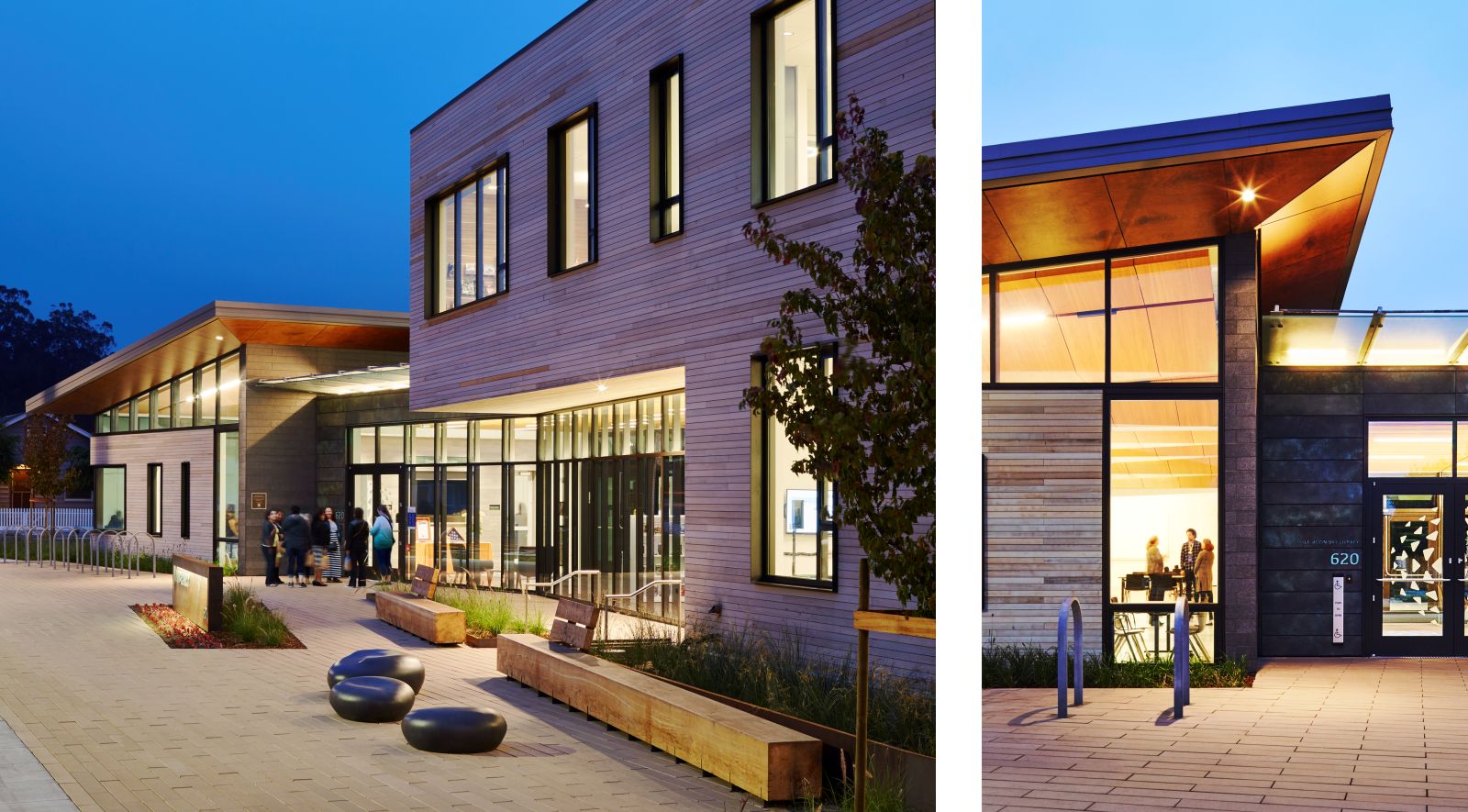A joint project between the City of Half Moon Bay and the County of San Mateo, the design of the new Half Moon Bay Library honors the region’s agricultural roots and coastal environment while providing a valuable community resource to serve the 270-square-mile area. The challenge was how to satisfy the needs of the growing coastal region (in addition to Half Moon Bay, the library serves 10 other unincorporated communities along the coast, from Montara to Pescadero), while preserving the modest architecture character of Half Moon Bay.
The resulting building strikes a balance—a facility large and flexible enough to meet the region’s current and future needs, yet one that responds directly to its physical context and community. To minimize the building’s presence in the neighborhood, the massing of the building is broken down into two, small rectangular volumes to present a low, single-story facade along the street, hiding a larger second-story height in the back of the building. Aesthetically, the design celebrates Half Moon Bay’s agricultural roots and coastal location without imposing an overwhelming sense of either.

The design eschews surfboards and cresting waves (Mavericks, the world famous surf location is located just outside of Half Moon Bay), but instead lets views of nature and the ocean take center stage. Soft, natural materials such as patinated copper, wood, and rough stone are articulated with crisp, clean, and contemporary detailing. Materials are low maintenance, durable, and natural, intended to grow more beautiful with time. The interior design enhances the users’ experience and supports the library service model in both public and staff work spaces.
The library’s functional organization was developed in close consultation with library staff, and is based on community feedback, priorities and preferences. Adequate sight lines and visibility ensure that security and operations can be maintained with a minimum of staffing. The library is highly flexible, capable of serving multiple functions as user needs change, while remaining connected through a unifying set of design elements. Three-quarters of the stacks are on wheels, giving the library the flexibility to change the layout of the room over time, or even for special events.

Designated areas within the library include a community room, adult reading area, children’s area, quiet reading area, teen room, maker-space, teen room, and support areas. Much of the interior and exterior features warm-colored, stained Douglas Fir. The elevator core is wrapped in weathered teak, providing a nuanced accent for patrons as they ascend to the second floor. Upstairs, soaring ceilings and views play against the dramatic, exposed roof structure.
The king-post trusses and tie-rods are evocative of the rigging of a ship, and in keeping with the coastal vernacular of the design. Translucent, white, playful panels are used throughout the interior, subtly evoking coastal fog. Green and blue versions provide pops of color in the children’s area and serve as playful representations of water droplets and sea glass. The exterior courtyard is oriented to provide protection from the wind, as the area can be chilly year-round.

By blocking the wind with the building and using dark materials like black metal composite seats to trap the warmth of the sun, the courtyard provides year-round outdoor space, complete with an amphitheater for children’s story time. To control views from the library into the neighborhood, especially from the community room, slot window and clerestories were used that maintained neighbor privacy, while still enabling the library to emit a warm inviting glow during evening hours.
The community room—capable of seating 122 and dividable into smaller spaces—features a folded-wood, micro-perforated ceiling for enhanced acoustical performance. The building is LEED Platinum certified and designed to achieve net-zero energy. Sustainable features include a photovoltaic array, bioswales, recycled materials, ample daylight, a highly efficient building envelope, high performance HVAC systems, and low water use fixtures and drought tolerant planting—weaving sustainable elements through all parts of the site, building, and design. Source by Noll & Tam Architects.

- Location: Half Moon Bay, California, USA
- Architect: Noll & Tam Architects
- Principal in Charge: Chris Noll
- Project Manager: Alyson Yarus
- Designer: Jocelyn Lawrence
- Interiors Architect: Trina Goodwin
- Civil engineering: BKF Engineers
- Structural engineering: Mar Structural Design
- Mechanical engineering: Integral Group
- Electrical engineering: Integral Group
- Landscape architecture: Royston Hanamoto Alley & Abey, Inc.
- Lighting: Integral Group
- AV/acoustics/telecom/security: Charles M Salter Associates, Inc.
- Commissioning: Guttmann & Blaevoet
- Spec writer: Richard C. Hubble
- Cost estimating: Oppenheim Lewis, Inc.
- Signage/graphics: Wendy Wilsher
- Contractor: BHM Construction, Inc.
- Cost: $18.2 million
- Area: 22,000-square-foot
- Year: 2019
- Photographs: Anthony Lindsey, Courtesy of Cameron Macallister Group

Photo © Anthony Lindsey 
Photo © Anthony Lindsey 
Photo © Anthony Lindsey 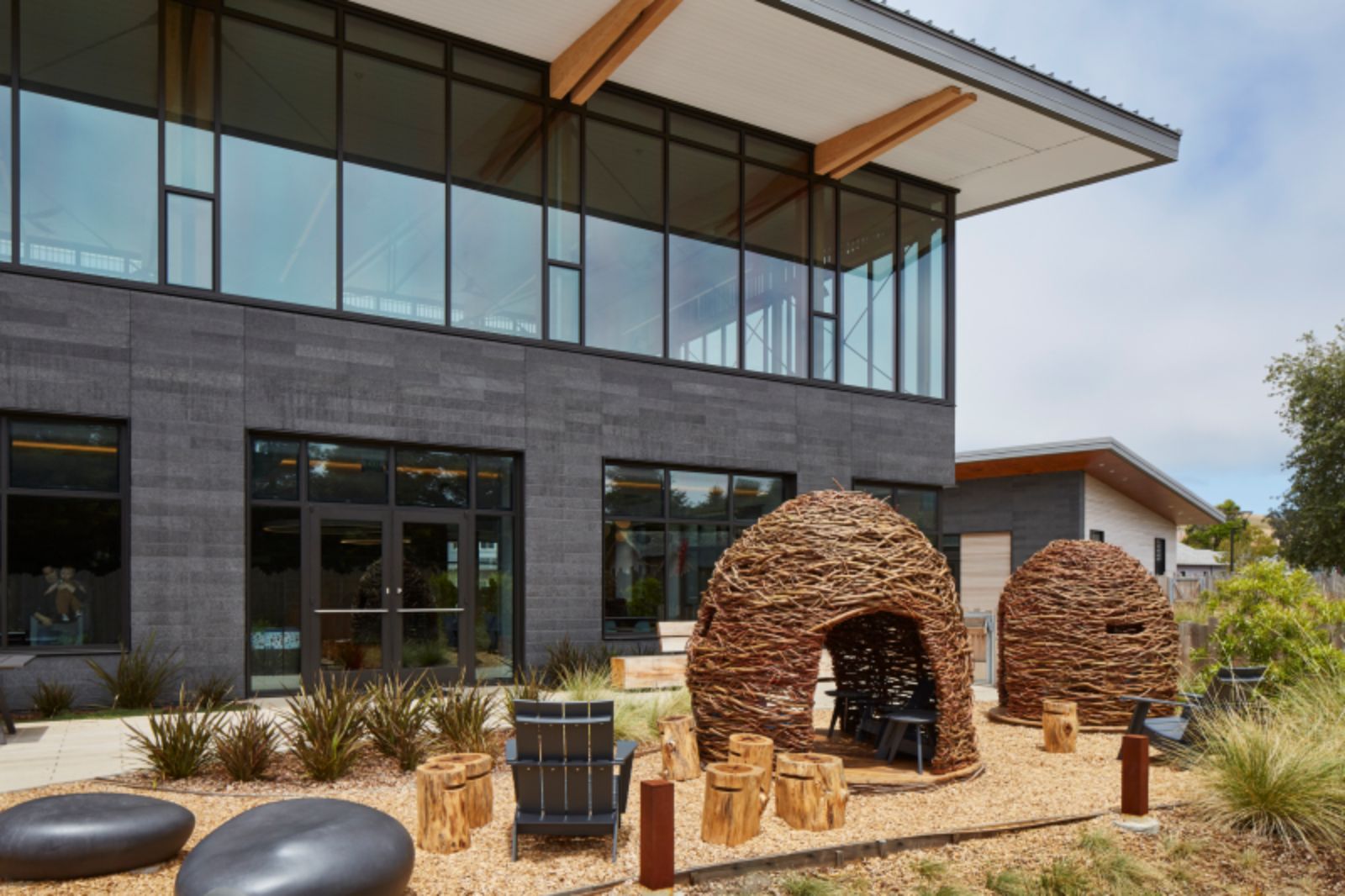
Photo © Anthony Lindsey 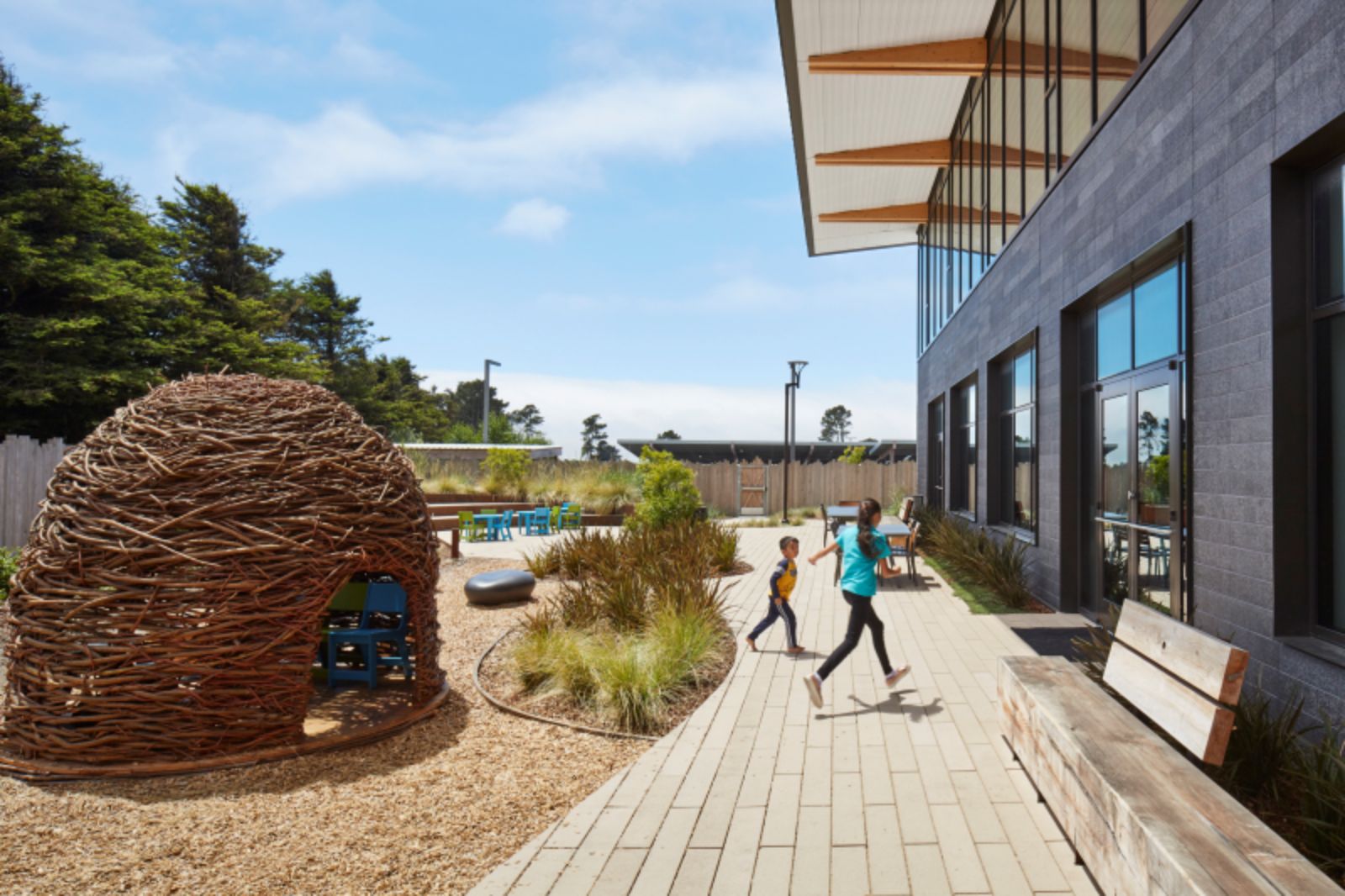
Photo © Anthony Lindsey 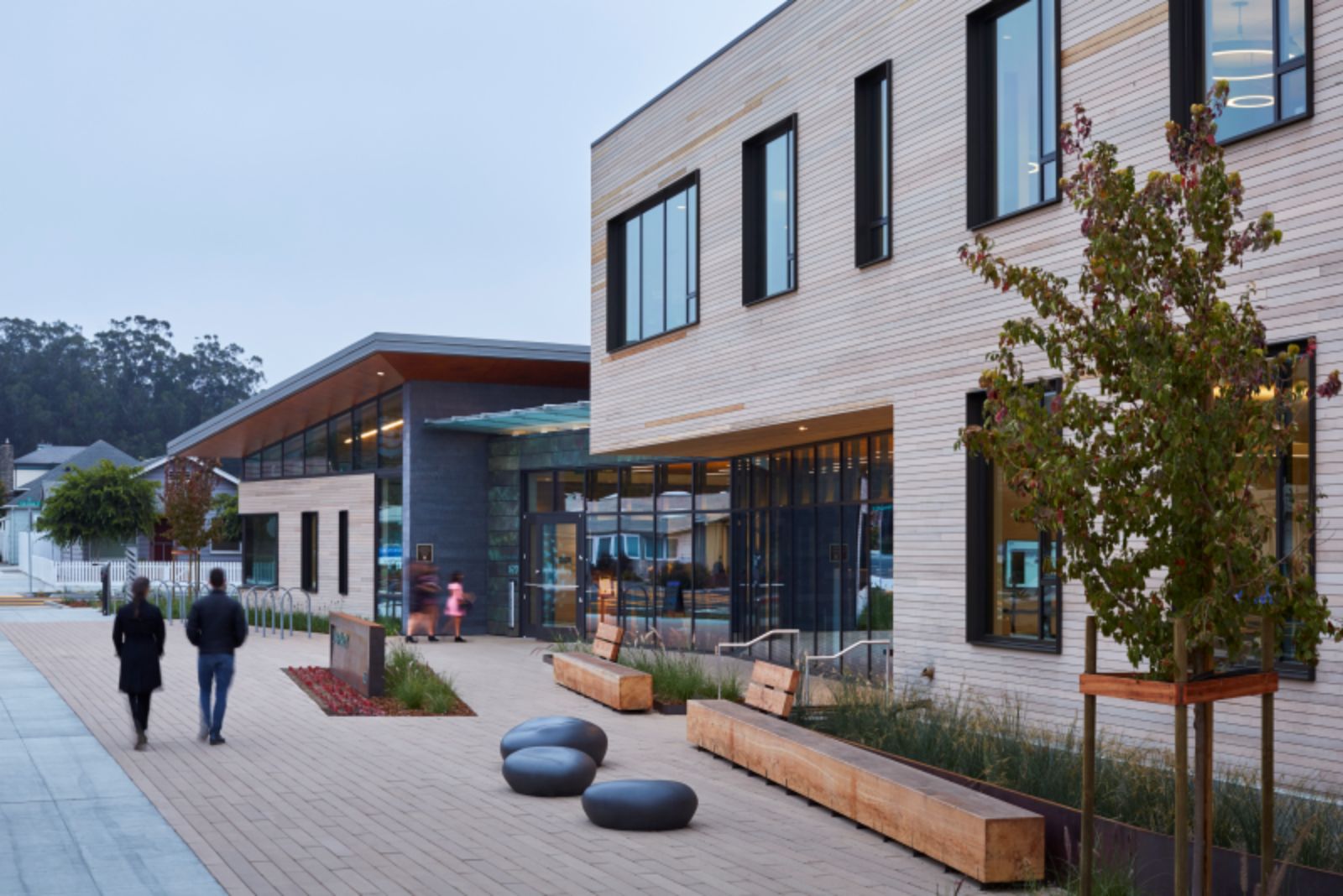
Photo © Anthony Lindsey 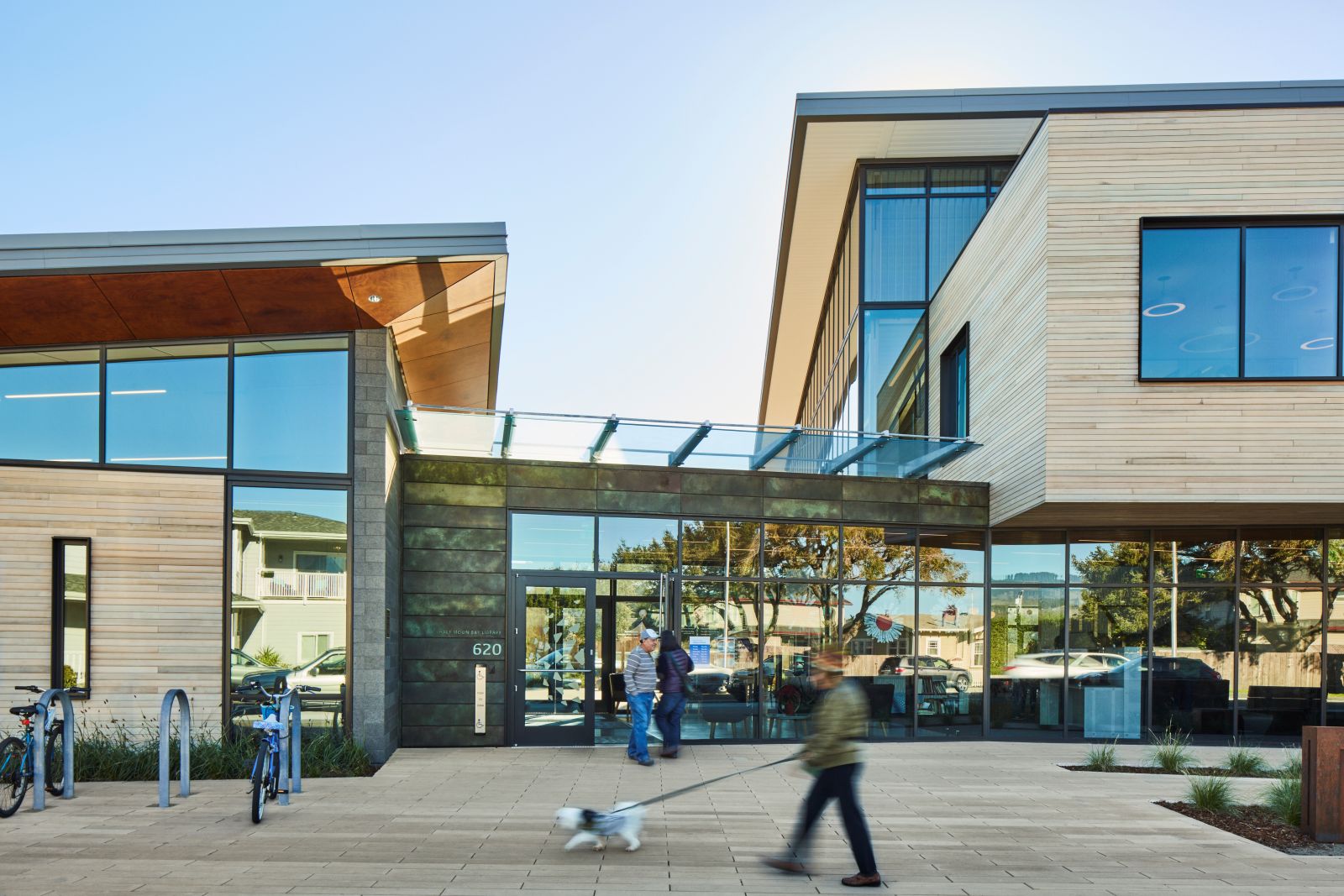
Photo © Anthony Lindsey 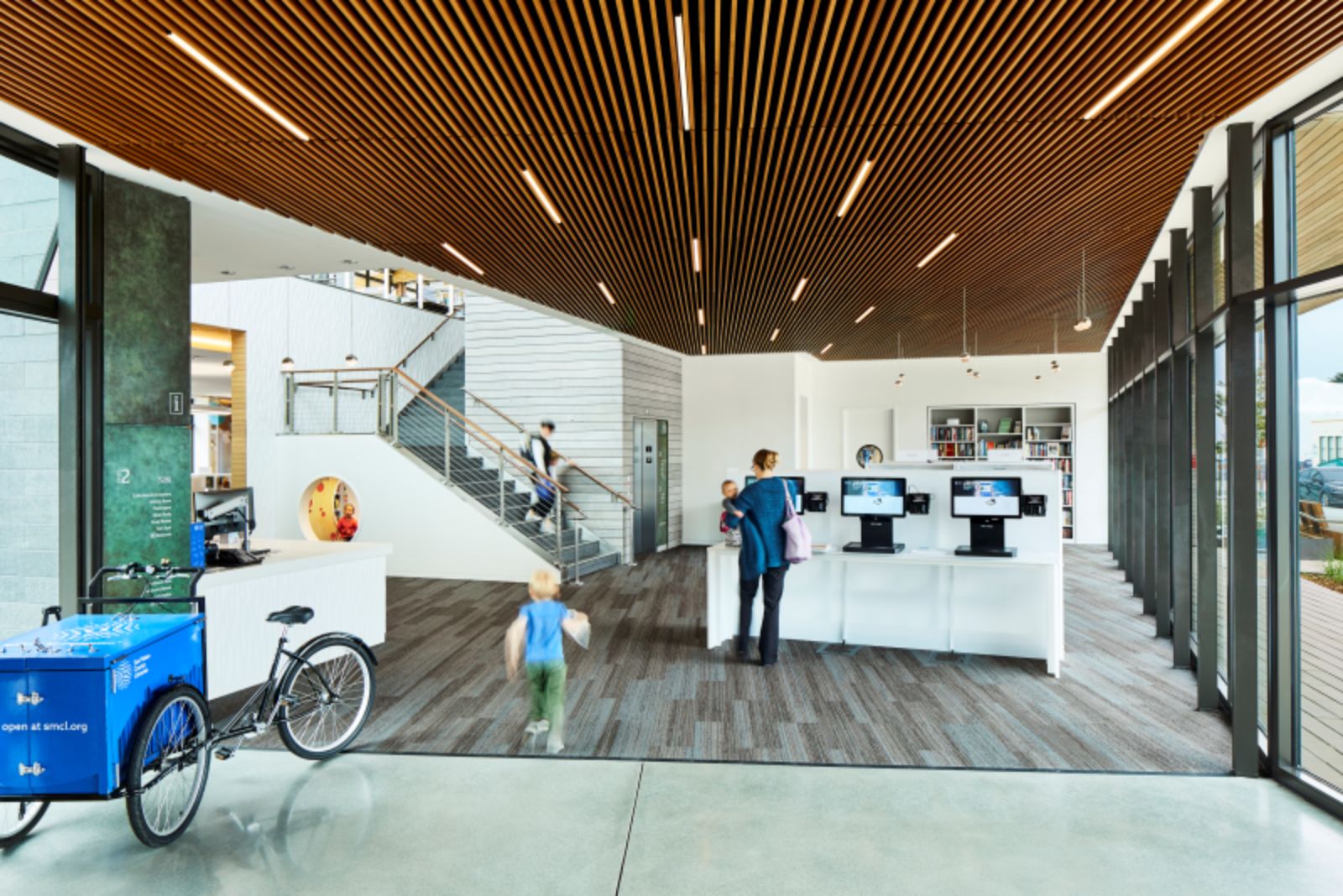
Photo © Anthony Lindsey 
Photo © Anthony Lindsey 
Photo © Anthony Lindsey 
Photo © Anthony Lindsey 
Half Moon Bay 
Half Moon Bay 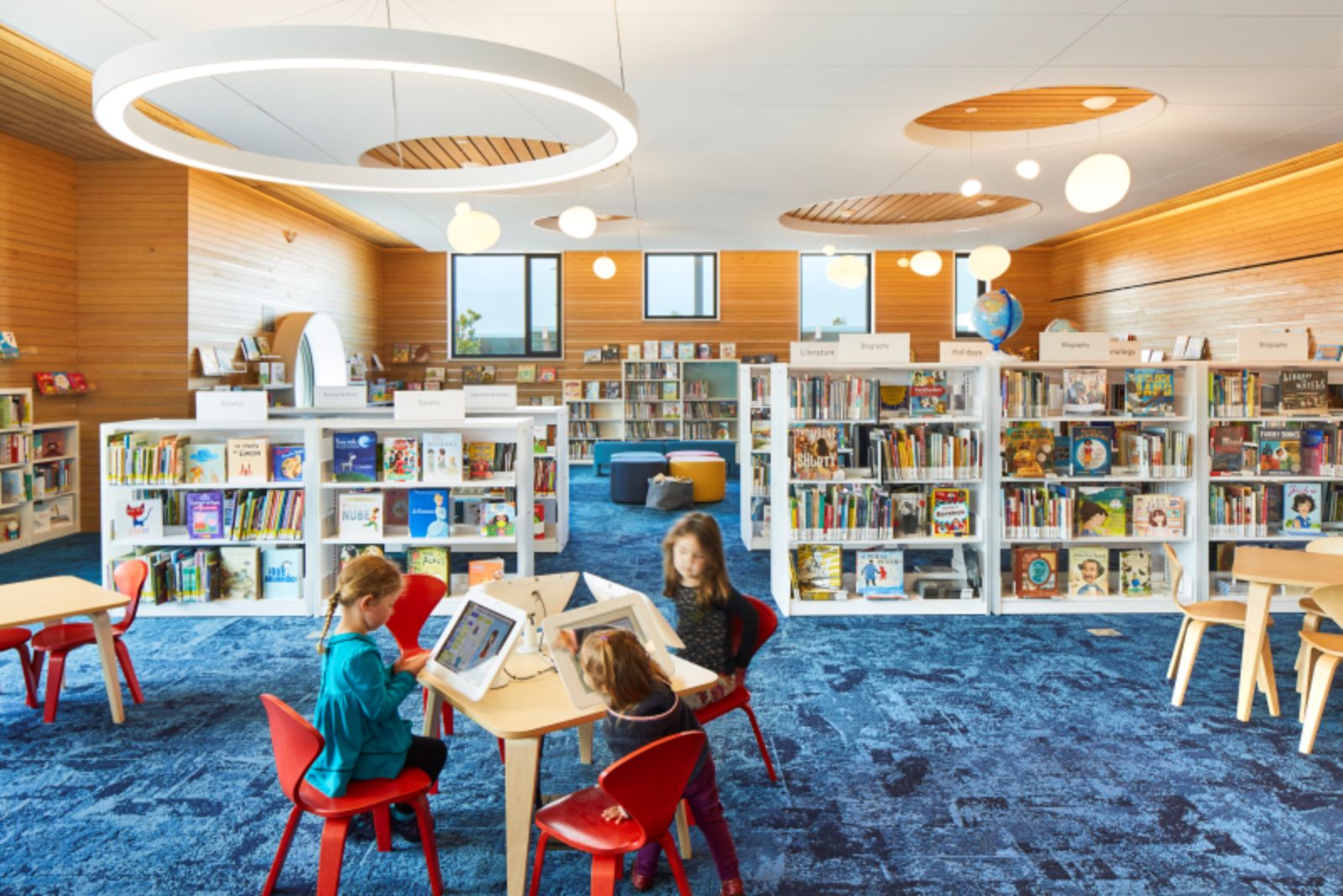
Half Moon Bay 
Half Moon Bay 
Half Moon Bay 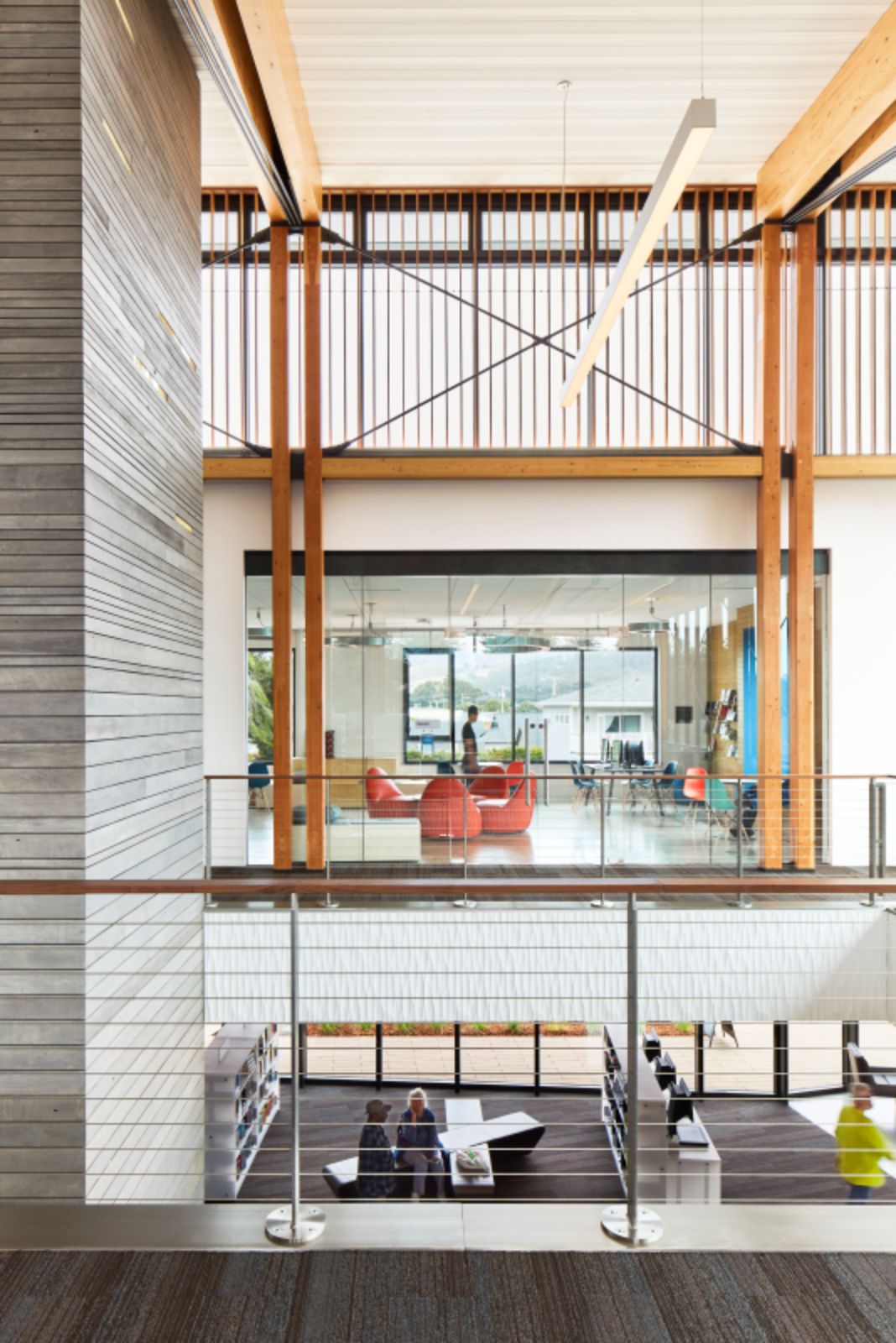
Half Moon Bay 
Half Moon Bay 
Half Moon Bay 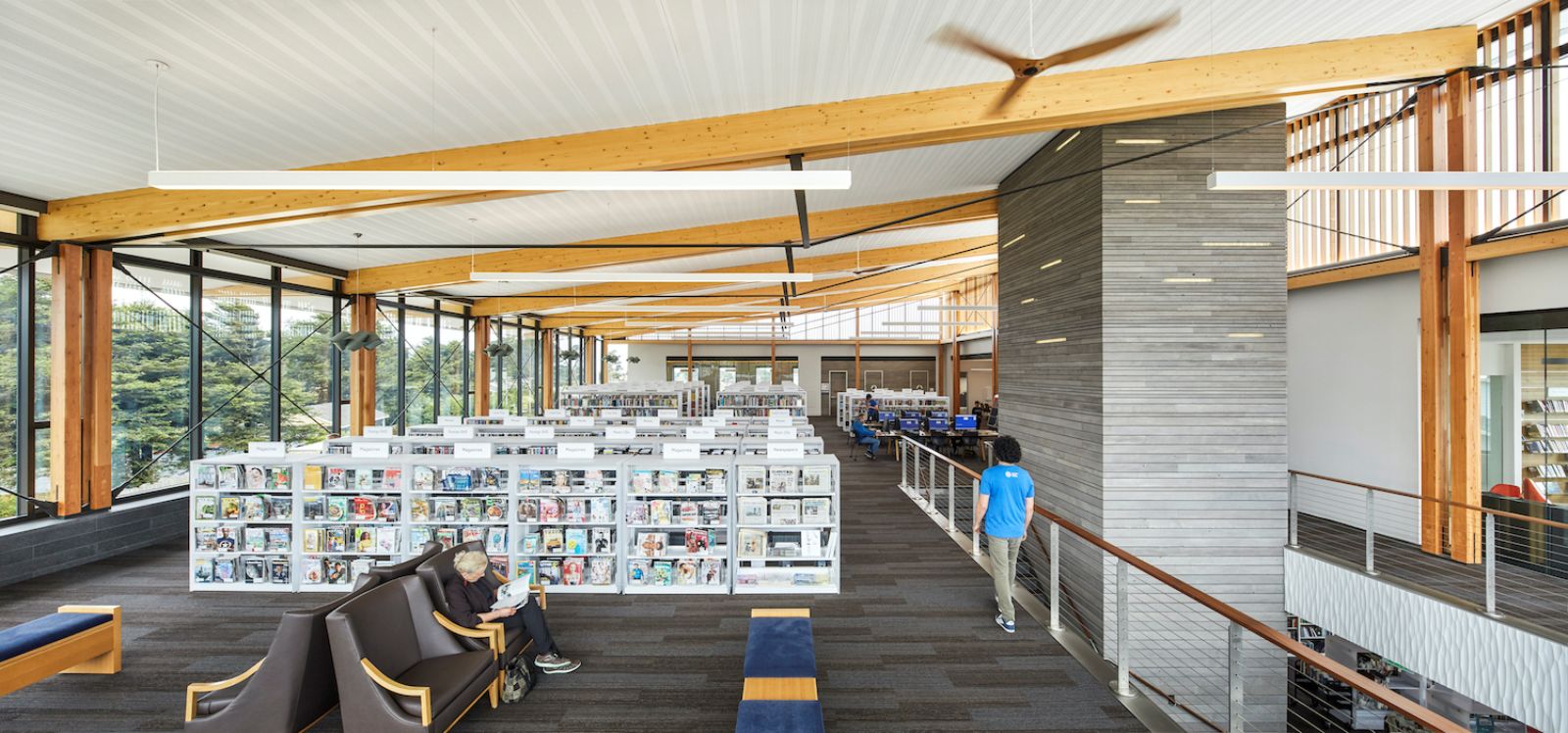
Half Moon Bay 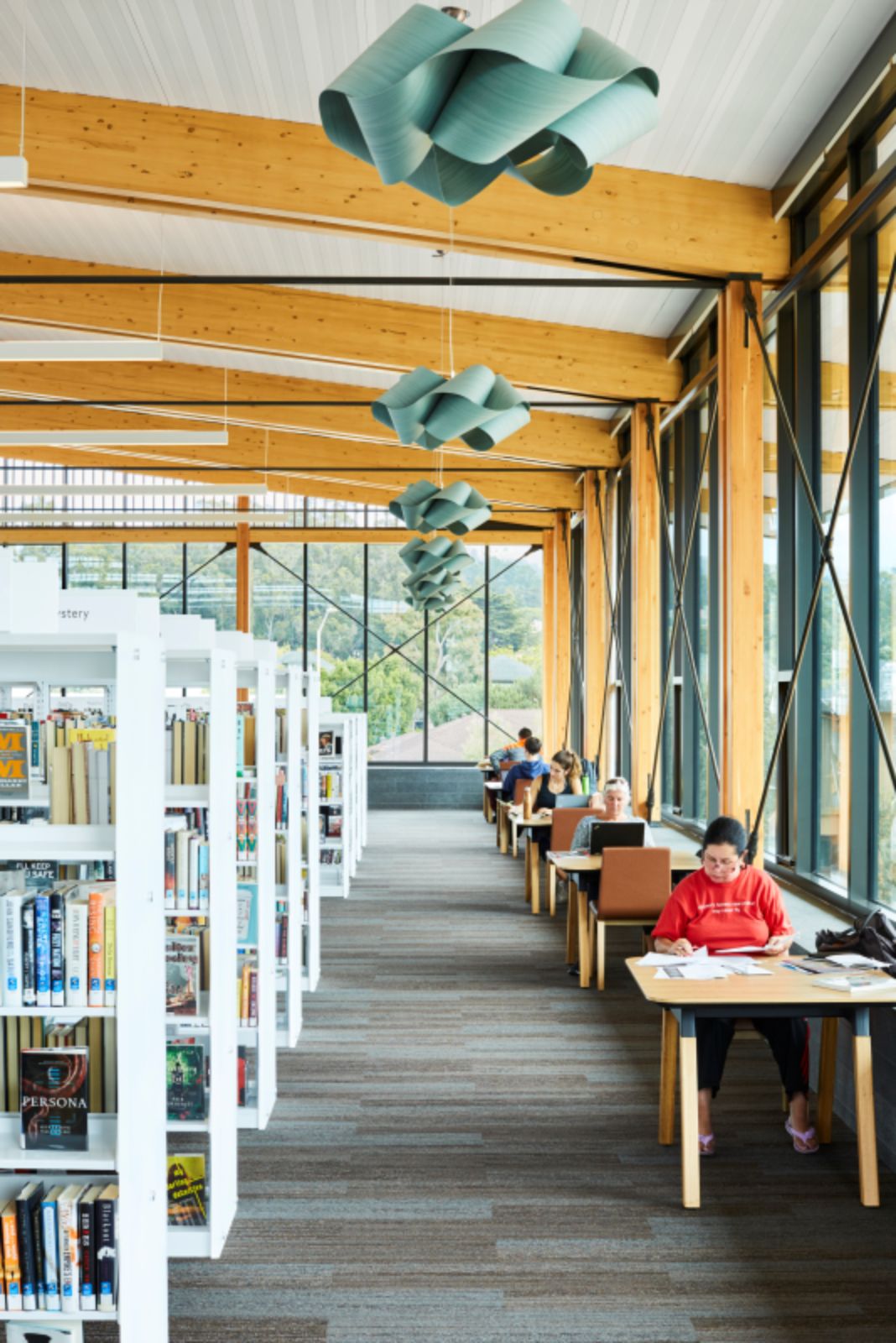
Half Moon Bay 
Half Moon Bay 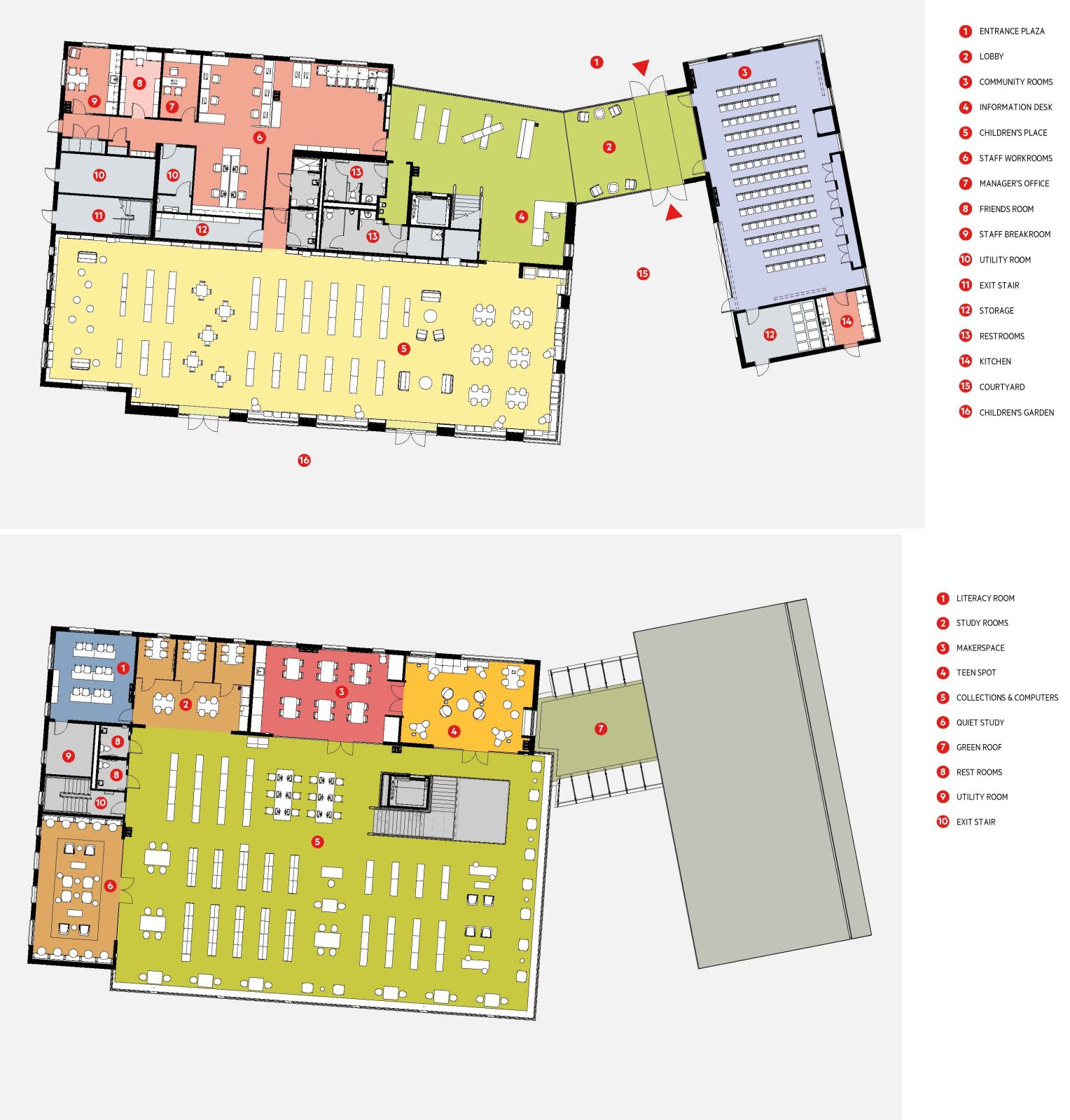
plans 
Section

